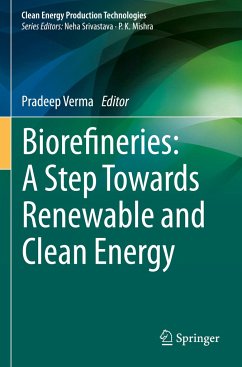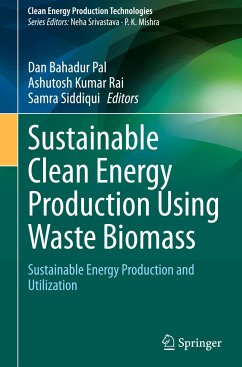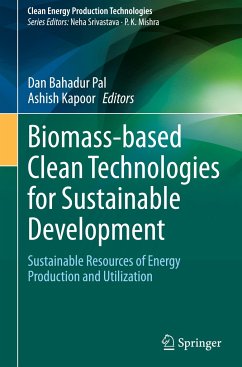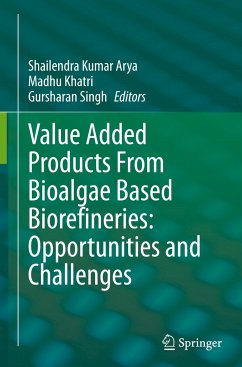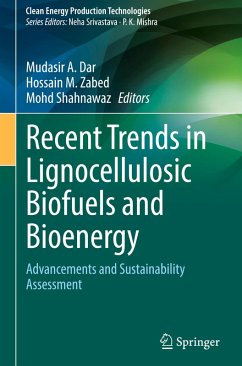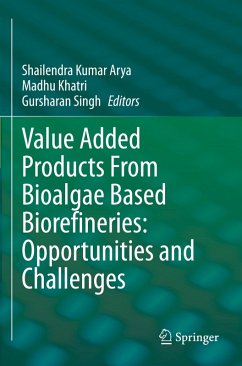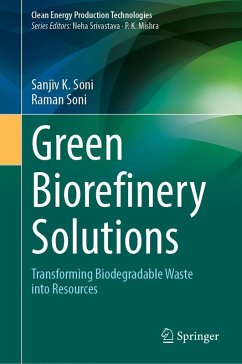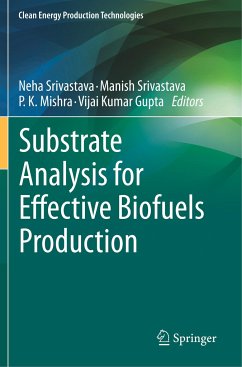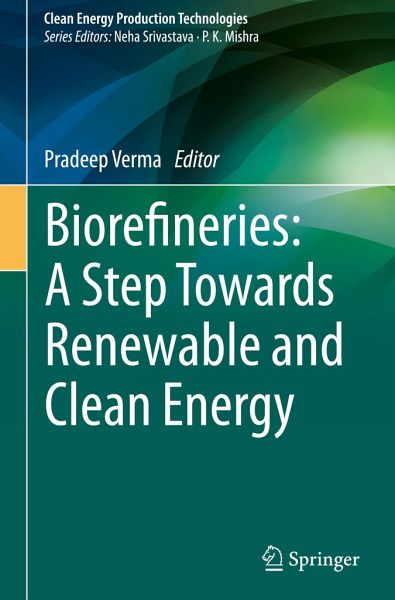
Biorefineries: A Step Towards Renewable and Clean Energy

PAYBACK Punkte
57 °P sammeln!
This book provides a comprehensive account of past, present and future of the biomass based biorefineries. It is an all-inclusive and insightful compilation of recent advancements in the technology and methods used for conversion of biomass to bioenergy and other useful biochemicals. The book also focuses on the limitations of existing technologies and provides the future prospects, as well as discusses socio-economic impact of biomass based biorefineries. This book assists researchers in the area of lignocellulosic biorefineries and can be used by the students, scientist and academician as an...
This book provides a comprehensive account of past, present and future of the biomass based biorefineries. It is an all-inclusive and insightful compilation of recent advancements in the technology and methods used for conversion of biomass to bioenergy and other useful biochemicals. The book also focuses on the limitations of existing technologies and provides the future prospects, as well as discusses socio-economic impact of biomass based biorefineries. This book assists researchers in the area of lignocellulosic biorefineries and can be used by the students, scientist and academician as an advanced reference textbook.





